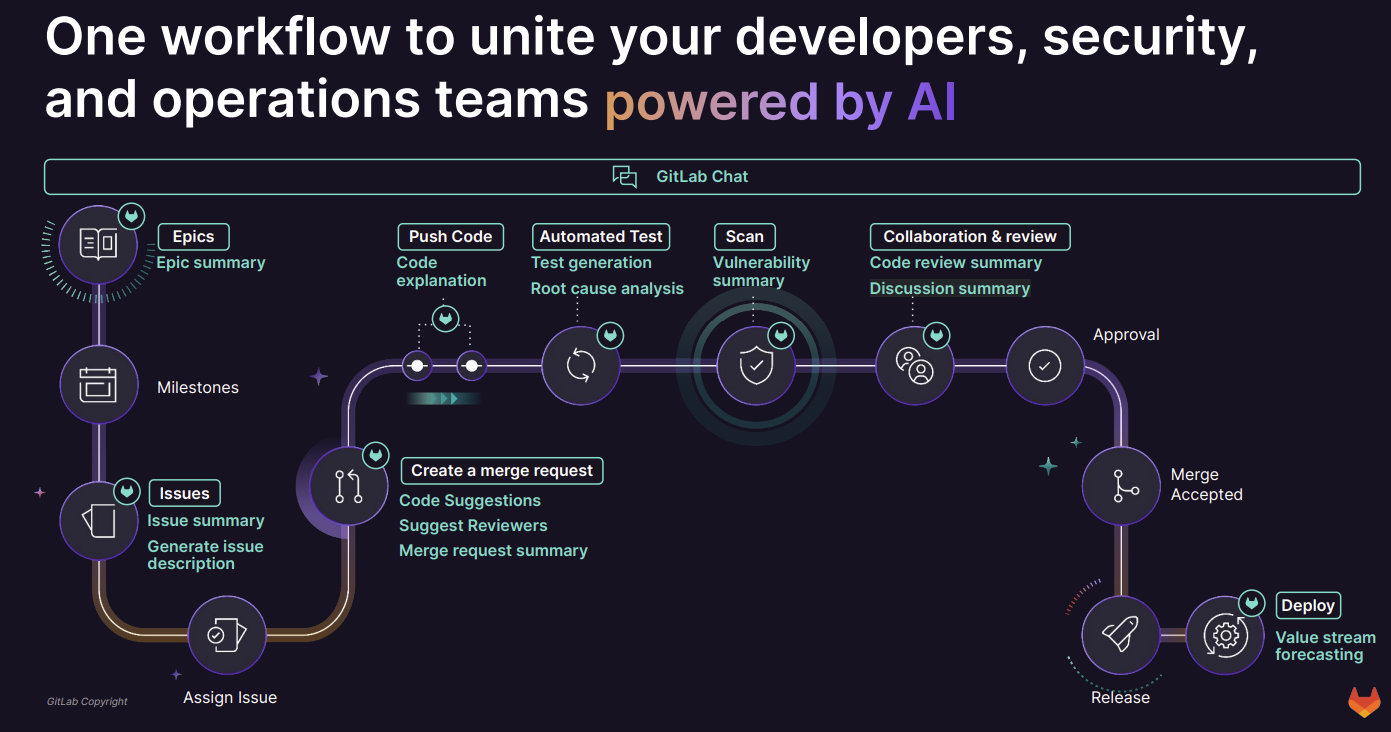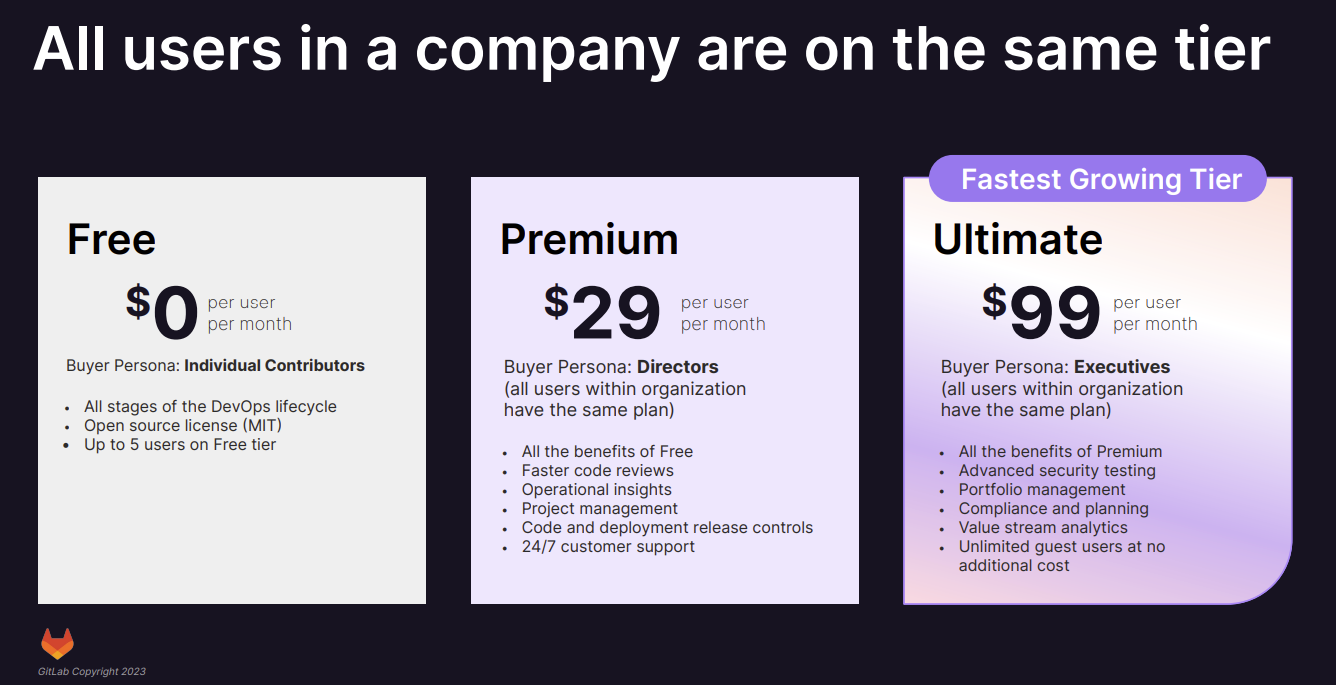GitLab is on a $559 million revenue run rate exiting the third quarter with 8,175 base customers. While that quarter is garnering Wall Street attention, enterprises should focus on the competitive dynamics moving GitLab's results as its DevSecOps platform gains traction.
The company reported third-quarter revenue of $149.7 million, up 32% from a year ago, with a net loss of $1.84 a share. Non-GAAP earnings for the third quarter checked in at 9 cents a share.
Gitlab's portfolio includes GitLab Duo, a suite of AI tools, and a platform for agile development, automated software delivery, source code management, security and compliance and continuous integration and delivery.
Constellation Research analyst Holger Mueller said:
"Gitlab is on a path to break half a billion in revenue for the first time in its history, fueled by software powered enterprises. Whether the security angle of its DevOps product is the key driver remains to be seen, as the market and the competition is growing."

Here's a look at why GitLab's third quarter was better than expected.
Jira switching to cloud-only model opens the door. GitLab CEO Sid Sijbrandij said Atlassian Jira customers are evaluating platforms and GitLab is competitive. He said:
"Atlassian’s decision to stop support for its server offering is making customers reconsider what product they use for Enterprise Agile Planning. We are focused on making it easier for these customers to move to GitLab SaaS and self-managed. We recently launched a new Enterprise Agile Planning SKU. Now, GitLab Ultimate customers can easily bring non-technical users into the platform.
Because of that server offering being deprecated, a lot of customers are taking stock of where they're at. It is a natural point for enterprises to evaluate."
AWS and Google Cloud are strong partners and motivated to replace Microsoft's GitHub. Sijbrandij said that it won a third quarter deal with a European telecom against GitHub in partnership with AWS.
With Google Cloud, GitLab is being built into the console. Sijbrandij cited a handful of customer wins against GitHub as enterprises aimed to centralize platforms. Sijbrandij said:
"We've got strong partnerships with both Google and AWS. And they're interested because we help their customers move to their cloud faster. We help them accelerate moving those workloads. And an interesting thing we did with Google recently, we announced at Google Next that they'll be integrating GitLab into their development console for GCP. I think that's a really interesting development that will pay off as many things over the longer term. I think it speaks to the strength of these partnerships together with the AWS example."
Compliance and governance. Sijbrandij said security and compliance integration has become a key selling point. GitHub appears to be landing customers like Lockheed Martin and Carfax because it builds security and compliance directly into workflows.
The ability to set controls and governance frameworks that's integrated into developer workflows has become a selling point. Sijbrandij said:
"With point solutions, developers have to wait on security teams to identify vulnerabilities. Or, if they have access to a security scanner to assess their code, they need to manually copy and paste the scanner results back into their development tool. The result is code that isn’t scanned at the time it’s written. This increases the time required to detect and resolve vulnerabilities."
GitLab has GitLab Dedicated, a single-tenant SaaS platform that gives customers data isolation and residency. Sijbrandij added:
“GitLab is the only DevSecOps platform that brings together security, compliance & governance, AI, and enterprise agile planning. Enterprises face complexity from all directions in the form of rapidly increasing user expectations, more advanced cyber-attacks, and more strict industry regulations. We believe they need GitLab to help them navigate this complexity and realize business value. Our platform improves engineering productivity, reduces software spending."
DevSecOps is a critical category as AI workloads grow. Sijbrandij said that AI and integrating it with developer workflows is also driving sales.
"AI needs to be throughout the life cycle and for multiple things, like only 25% of the time of a developer spends on coding, 75% is other tasks. And as developers get more productive, they write more code, you need to also increase the productivity of security and operations. So, we're focused on making it work throughout the life cycle," he said.
Expansion beyond developers. GitLab's enterprise planning suite is attracting usage beyond developers. Business users that have to interact with developers and engineers can use portfolio and project management tools without getting bogged down.



